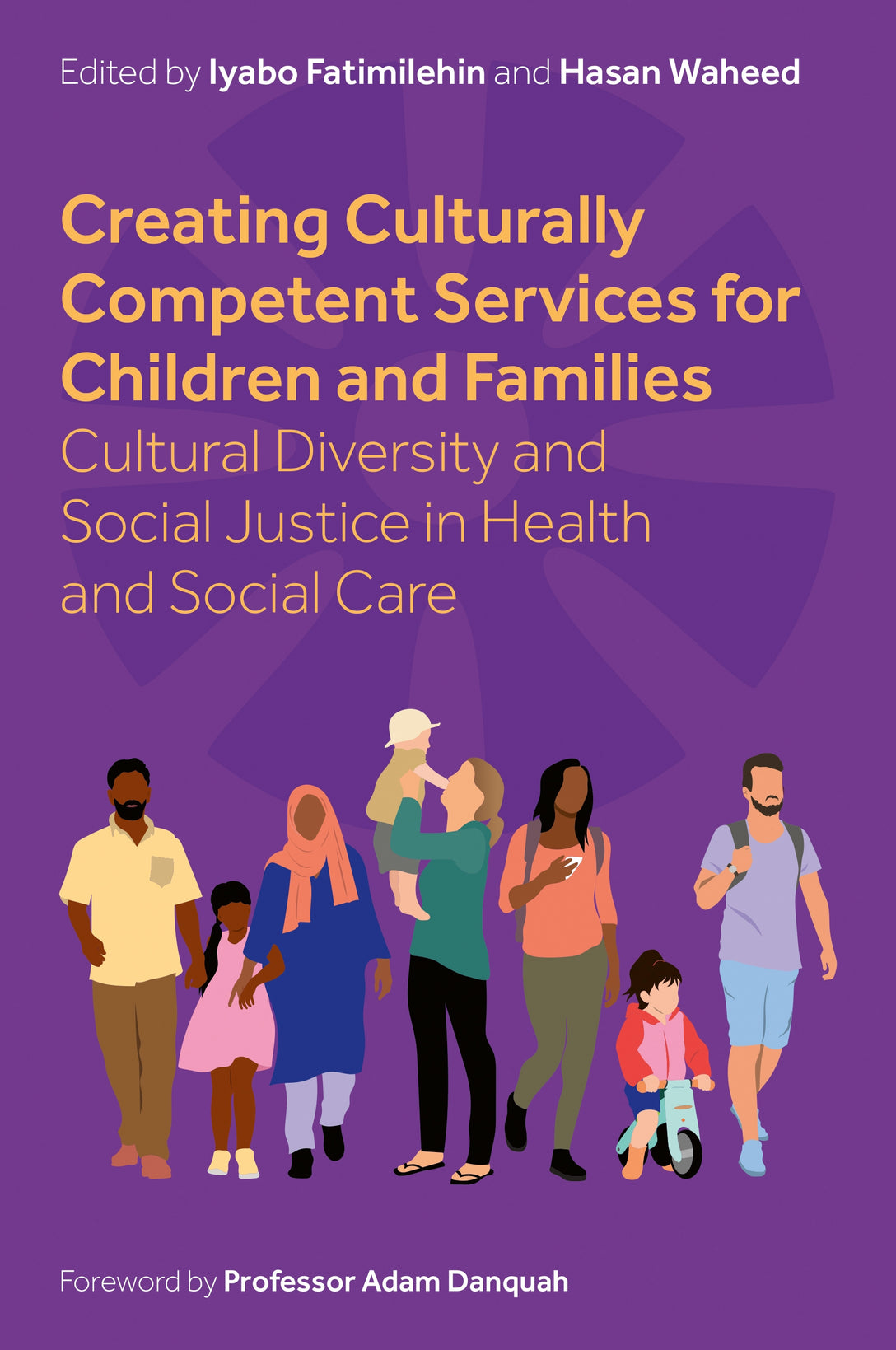
Press Reviews
Julia Faulconbridge, Consultant Clinical Psychologist (Children, Young People and Families) and co-editor of ‘Improving the Psychological Wellbeing of Children and Young People’
This timely and valuable book is both an accessible and nuanced exploration of cultural competence within its historical and social contexts and also a practical handbook. Using a mixture of personal experiences, research and theoretical models, service and case stories, it demonstrates how we can work with families, design services and collaborate with each other to embed cultural competency and social justice in all we do. It should be essential reading for professionals and service planners alike.
Dr Gillian Hughes: Clinical psychologist and family therapist and co-author of ‘Liberation Practices: Towards Emotional Wellbeing Through Dialogue’
This is an exciting book, which holds social justice at its heart and recognises the centrality of social context in people's lives. This timely, values-driven book is solidly rooted in theory, highlighting innovative approaches and is rich in practical recommendations. A truly essential read!
Professor Nimisha Patel: Professor of Clinical Psychology, University of East London
This book is a vital and timely contribution to the field of child and family mental health. It centres the lived realities of children and families whose experiences are too often overlooked in mainstream practice and the authors bring to the forefront the importance of cultural and social context and responsiveness in therapeutic work. The book offers a grounded and compassionate approach to engaging with the complexities of identity, migration, and systemic injustice, offering practical tools and reflective insights for practitioners working across diverse communities. I believe it will be an essential resource for practitioners committed to culturally-attuned and appropriate, socially just practice with children and families.
Dr Rufus May: Consultant Clinical Psychologist and lead for Manchester Adult Mental Health In-Patient Psychology, Co-director of Let's Face Change
This is an exciting account of doing things differently and actively engaging with power dynamics psychology usually avoids. It's full of helpful examples of working creatively, systemically and in ways that honour the strengths (and challenges) of people from the global majority. I could not put down this generous description of Just Psychology's unique work promoting and delivering culturally competent services (for children and their families).
Navtej Purewal: Professor of Anti-colonial and Decolonial Politics and Praxes, Decolonising Arts Institute, University of the Arts London
This book situates the importance of specialist mental health and family support services for BME children and their families in full policy, professional, and political context. It is a must-read for anyone wanting to learn about the pathbreaking work of Just Psychology and its radical, preventative and social justice-inspired approach. The editors have put together a rich volume of contributions, including their introduction, which each offer in-depth analysis through reflection and insights from clinical practice. The book shows how important it is to not only recognise the importance of more awareness and understanding of the needs of BME children and their families but also the pivotal and in many cases the lifeline that professional expertise and services provide to them.
